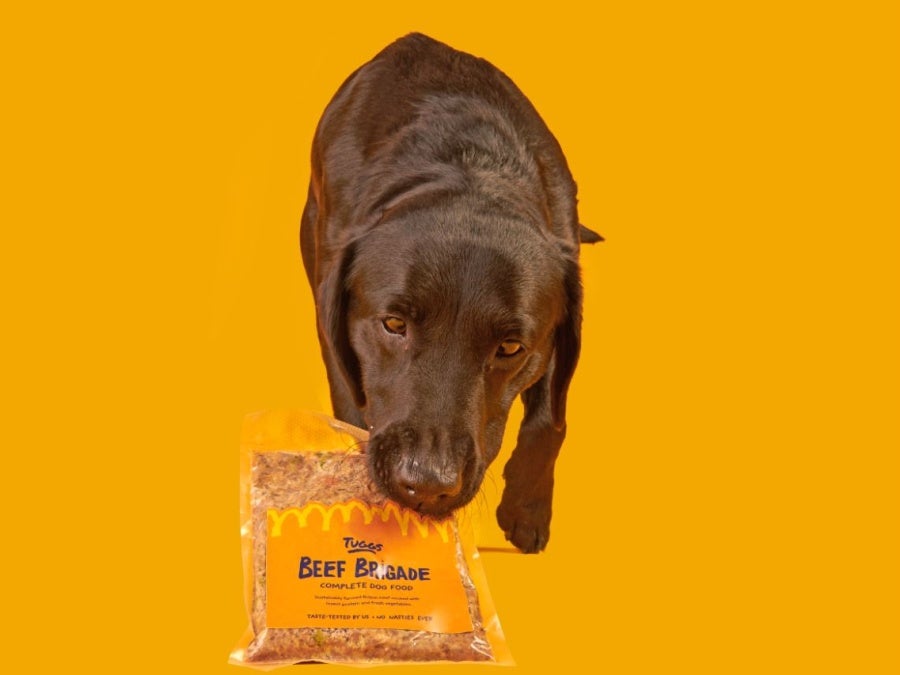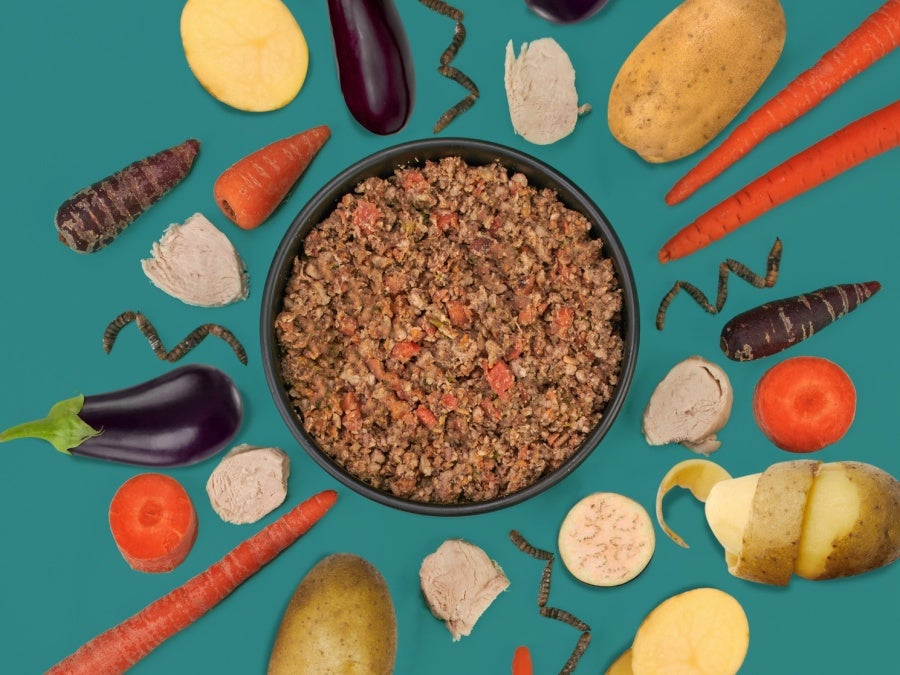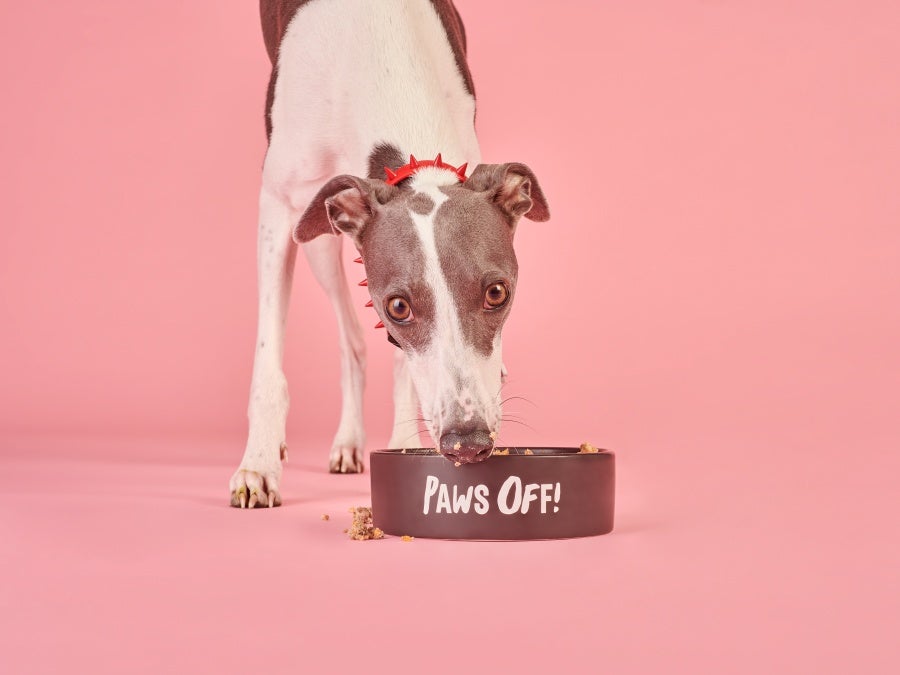
When Harry Bremner submitted his master’s dissertation business proposal in 2021, his advisor thought the idea was so good he offered to fund it.
The idea? An insect-based, dog-food subscription brand.

Discover B2B Marketing That Performs
Combine business intelligence and editorial excellence to reach engaged professionals across 36 leading media platforms.
The resulting business, Tuggs, has just launched in the UK and Just Food caught up with Bremner on his strategy.
Just Food: You’re no stranger to entrepreneurship; what was it about the pet-food industry and insects that you thought would make a successful business?
Harry Bremner: Regulation was passed by the EU in 2017 to allow insects to be used for fish feed. I became intrigued with the concept because I had read that, in the next 50 years, we need to produce more food than in the entirety of human history to supply increasing populations. I started reading about insect farming, which uses a fraction of the land, water resources and a small percentage of the carbon emissions related to, say, beef manufacturing. I thought: ‘Well, this is a solution, it’s just been legalised so this is an opportunity to get in.’
I sat on the idea for a while – at that time I was 21 and studying at St. Andrews University – but I always had in the back of my mind that insects are the future. Lobsters are a delicacy – consuming insects, for me, is no different psychologically. There’s a barrier that we need to get over and, when we get over it, the access to the market opens – and that’s a matter of time.
While doing a business master’s at UCL, I started studying the dog-food industry. I read how unsustainable the industry was, alongside how unhealthy it was. There’s a really extensive peer-reviewed article that shows pet food accounts for up to 30% of the environmental emissions related to food production.

US Tariffs are shifting - will you react or anticipate?
Don’t let policy changes catch you off guard. Stay proactive with real-time data and expert analysis.
By GlobalDataAfter I presented my dissertation business idea, my advisor called me about a week later and invested. At that point, I realised that I was going to go for it.
JF: How is Tuggs funded?
HB: We’re about to finalise a pre-seed, which will be GBP0.5m (US$0.6m) and that’s made up of one main institutional investor, an international dog food company that at the moment I can’t disclose.
Apart from that, we had a couple of angel investors – one was my advisor from university and another, a leading gun-dog breeder based in Pershire where we run the trials, Charlie Thorburn, who breeds gun dogs that the Royal family have used in their shoots.

JF: Presumably you don’t have your own production lines or facilities yet? Where do you get the insects from?
HB: We actually manufacture the food in Milan, Italy. We very badly wanted to make the food in the UK and we had an agreement with a manufacturer just outside of Glasgow in Ayrshire. They already have approval from APHA (UK animal and plant health agency) but we were using new equipment so we had to get the approval on that. It should have been a very simple process that maybe took a couple of weeks. We waited eight months and we never heard back and, in that time, I had everything else ready.
So we made an agreement with a company in Italy, which is very beneficial because the UK has also fallen far behind Europe in viable insect manufacturers. I don’t believe there’s any insect manufacturer in the UK that can supply fresh insects.
The UK is probably ten years behind the rest of Europe in insect manufacturing and farming which is really disappointing. But, because we manufacture in Italy we have access to the European market for insects, which is thriving. So, we have plentiful supply there.
JF: Once you’re established in the UK are you planning to expand into other markets?
HB: No plans at the moment. Our priority is to consolidate possession in the UK market. Perhaps we’d look at cat food before looking at a foreign market. I won’t pretend I don’t have aspirations of trying to launch in America – that’s always a great vision. But our sights are focused here.
JF: So you’re hoping to diversify the portfolio?
HB: Yeah. At the moment we have three recipes and, in about a year, we’ll have six and then we’re adding a range of treats – all insect-based treats and supplements.
There’s a really good market for sustainable dog toys as well. That’s something that’s overlooked: the plastics, a lot of the colourings and very unhealthy, unsustainable materials. It is something that we will definitely look at.
JF: Are you purely an e-commerce model at the moment?
HB: We are technically in four retailers, two in Scotland and two in Surrey. When we launched, we had a couple of small, independent, healthy pet shops reach out. It’s been going quite well but it’s not part of our business model long term.
By keeping to a subscription model, we are able to offer a better service. There are five metrics we use to calculate how many grams per day your dog should be consuming. It’s all personalised and everything’s flexible. You create an account when you make an order and you can update your dog’s health conditions, its activity levels, whether it’s overweight or underweight. We think that’s a really good way to combat issues of obesity as well because every month we’re monitoring the dog’s health condition. So that’s why subscription is a priority for us.
JF: Do you think Tuggs could appeal to the plant-based market where consumers have chosen to go plant-based for environmental reasons?
HB: Unfortunately not. There’s a few reasons for that. We do include meat and fish alongside insects and, in our customer research, I spoke to vegans and, for many of them, insects are sentient beings – although the research is inconclusive. We do have some customers that are vegetarians but, for hardline vegans, it’s a no.
JF: In terms of insect welfare, is it an ethical manufacturing process?
HB: The evidence on whether they’re sentient is inconclusive. My understanding is that they’re not sentient and the means by which they’re harvested and then killed is done ethically under EU regulation so I don’t have concerns there.

JF: Do you envisage long term that Tuggs might go to 100% insect protein?
HB: No, for a few reasons – although I would love to because it’s more sustainable.
From a nutritional point of view, the insects we use [black soldier flies] are incredibly dense in minerals and vitamins so if there was an extremely high concentration of them in a recipe, similar to many ingredients, it could pose a health issue to dogs, especially puppies.
From a business point of view, our research suggested customers would be more comfortable purchasing our fortification product rather than just insects because it’s a novelty and they’re not used to it. I don’t think the market is there for a fresh, insect-based product.
Thirdly, there’s not quite the supply. There’s good supply of black soldier fly which you can purchase economically. But the other viable insects would be mealworms or crickets and they’re far too expensive. So, if we were to just do insects, we would be using one type of insect and that doesn’t provide enough variation in dogs’ diets.
JF: Could we ever see insects replace livestock?
HB: I don’t think we would replace livestock 100% with insects. We want to explore areas where, for example, we can use other sustainable proteins like algae. I read about a company a few years ago that was creating animal proteins through the conversion of methane gases. You can create good proteins from microbial fermentation. So there are a lot of other avenues that we would want to look at. The idea is always to reduce livestock production but it might not necessarily be through increased insects. That’s the ethos of the brand.
We need to source a lot more proteins to be consumed and we need to do so as sustainably as possible but, if we were to eradicate livestock production, there’s quite a void that at the moment can’t be filled by insect production alone.
JF: So, can insect protein ever break into the mainstream in the UK?
HB: Yes! Two billion people across the world rely on insects every day as part of their diets. It’s abnormal to us here but that will have to change.
People may not do it on their own volition but, if there aren’t enough supplies of other proteins and there are nice innovative products being produced with insects then, yes, we will have to.
I think we’re probably within ten years for early adopters getting involved and probably 20 years from being relatively mainstream.
The big hurdle is the production and it’s not helping that in the UK at the moment we don’t have many choices of manufacturers.
JF: When you were doing your market research what were people’s perceptions of insect protein?
HB: When asked the question ‘would you purchase an insect-based dog food product?’ around 40-50% of over 350 interviews said ‘no’ or ‘unsure’. Only 9% said they didn’t like the idea of insects. The rest said they had never heard of it before, it sounded like it wasn’t a nutritionally good idea or they needed more information. So I don’t think people are objecting to the concept of eating insects, they’ve just not heard of it before. It’s just an educational piece.
JF: With the current inflationary environment, do you worry it’s a bad time to launch a premium product?
HB: It’s certainly not the best time but I don’t think it’s a bad time. Again, in our research, over 60% of customers we spoke to would cut back spending on themselves before they cut back spending on their dogs. So that’s the target market we’re going for.
Of course, the cost-of-living crisis isn’t ideal when our product is more expensive than off-the-shelf kibble. But there’s a lot of research being released to suggest that dogs fed fresh food, for example, can live on average 32 months longer than those fed processed foods, and the veterinary bills over time are far less proportionately. So there’s a lot of health advantages and an economic advantage over time. Vet bills are skyrocketing, as are insurance premiums, so our food is certainly a way to combat that. But it can be difficult to convince the consumer that over 15 years they will see a benefit but not in the next two years.

JF: Where do you think there’s an opportunity in pet food while snack brands for humans have failed to ‘make it’?
HB: I guess as humans we’re just not quite ready yet. The difference with dogs is the research: there’s a lot more research into the benefits of using insects in dog food. And I think that, perhaps as a bridging product, people prefer to feed it to their dogs before they eat it themselves.
JF: Looking into 2023, what are your biggest challenges and what are you most excited about?
HB: The biggest challenge is the education, not only in terms of convincing consumers why an insect product is better for their dog but also to convince them that, whilst the product might be a little bit more expensive, economically over time it’s actually going to be advantageous.
What am I most excited about? I’ve been working on this idea since 2017, so just to see it come to fruition finally. We’ll be able to grow a team, build more products and really just start to see the business take off. Last year was tough and so this year I’m just excited that we’re in the market, we’ve got hundreds of subscribers and the feedback has been great. Hearing someone say that this is the one food that their dog will eat or that their dog is looking and feeling better is very rewarding because that’s what we’ve set out to do.
Just Food analysis: Is vegan dog food heading for the mainstream?





